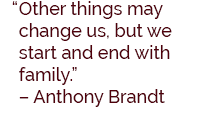Joy Journal
Every Friday, you can receive the Joy Journal, which will give you information, inspiration and tips that you can use in your pursuit for joy.
A Time to Cherish Family
A Holiday Season of Hugs
In the US, it is the day after Thanksgiving. Hopefully, you’ve filled your bellies with your favorite holiday foods and your hearts with precious moments with family. I, too, share that experience with you as we had a wonderful day with immediate family.
 But, my heart is also heavy. I’m sad. This darn Coronavirus is still wreaking havoc in parts of the world, and in a particular location that has a great impact on me and my hubby—Germany. My husband’s family lives there. Thankfully, all of them are healthy and have diligently followed the rules to avoid the nasty beast.
But, my heart is also heavy. I’m sad. This darn Coronavirus is still wreaking havoc in parts of the world, and in a particular location that has a great impact on me and my hubby—Germany. My husband’s family lives there. Thankfully, all of them are healthy and have diligently followed the rules to avoid the nasty beast.But, the country is in the throes of yet another COVID wave. So much so that they will likely not be able to blend households for Christmas, even immediate family, and our long-planned trip to see them is cancelled. Yes, we were, thankfully, able to see them this summer but 7 days in 2 years is not enough.
This holiday season can be exceptionally hard when we’re missing someone who has always helped to make it special. If you are able to spend time with your loved ones this holiday season, hug them a little tighter. Hug them for everyone who wishes they could be with their loved ones, and remember to give a little extra kindness and understanding to everyone this holiday season. Kindness and understanding are like hugs that we can always give each other – even from a safe social distance.
Past Journals
Does a returned document of redlines without any feedback breed trust or skepticism?
Redline documents…sigh.
“Big Law firm culture is toxic…”
But what can we do?
“Why isn’t this for all partners?”
A plea for management training
